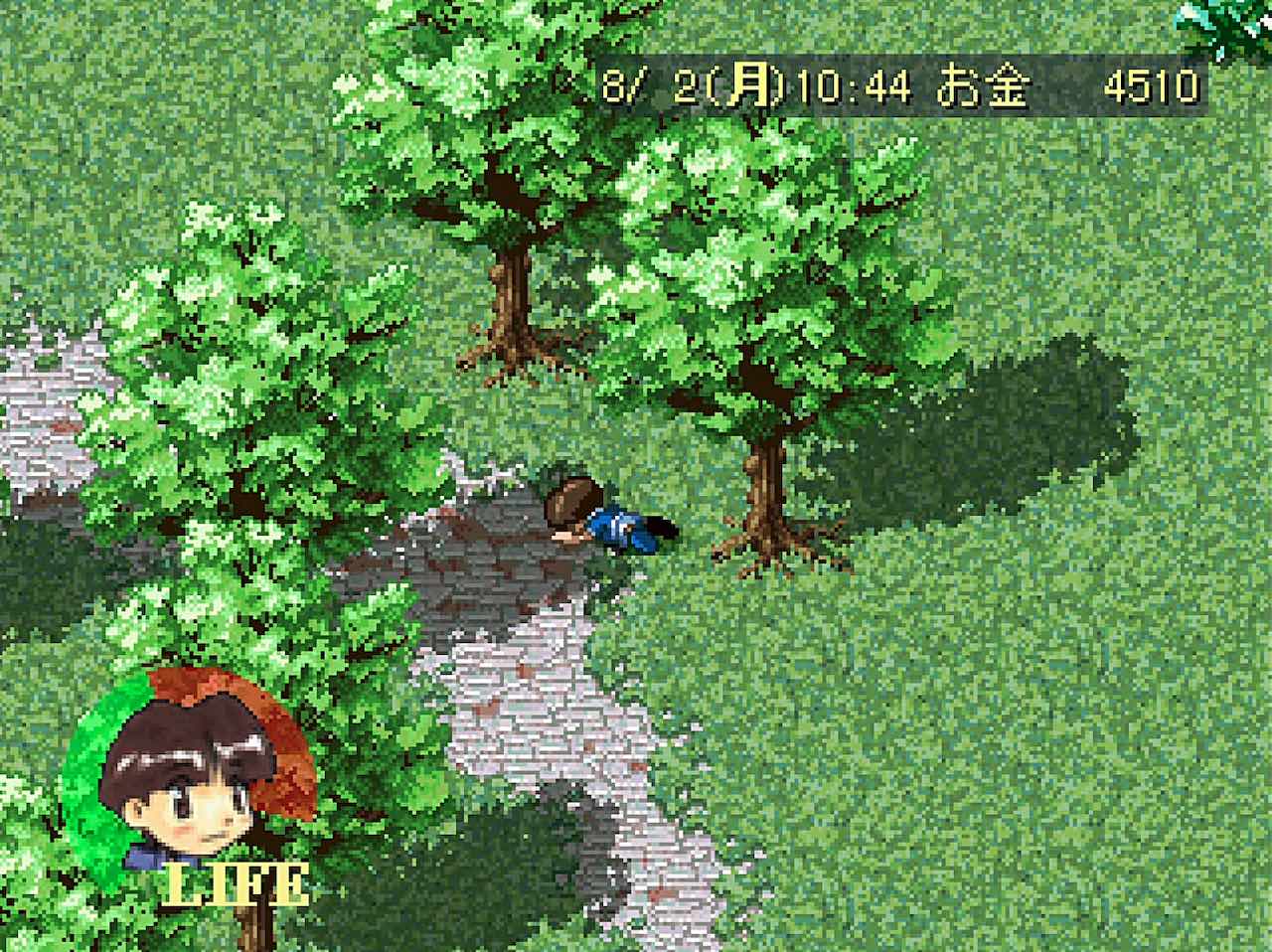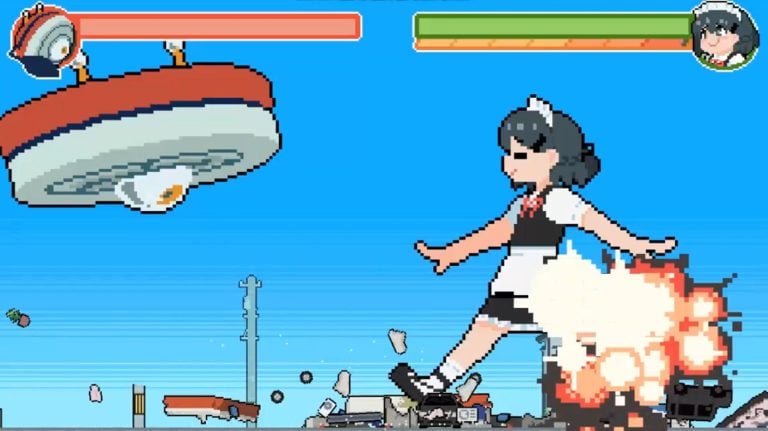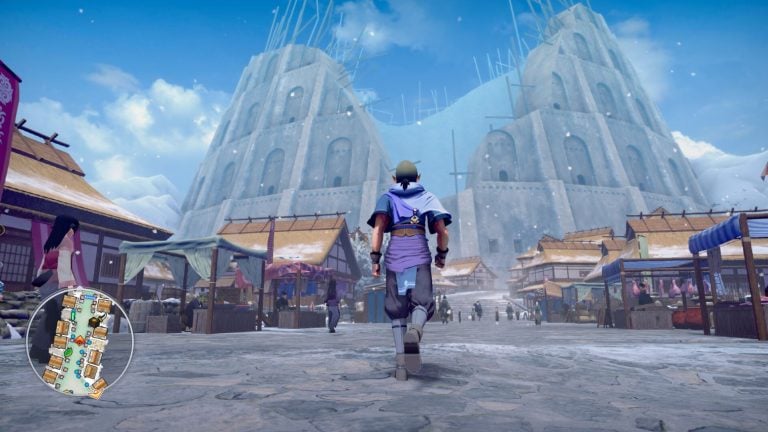When it comes to running games, loading data just comes with the territory. Developers have come up with all sorts of ways to reduce loading times and improve the experience for players, but one particularly clever example has been circulating on social media in Japan lately.
Twitter user @ScreenPocket used the social media platform to introduce players to how Doki Doki Poyatchio, a Japan-exclusive PlayStation 1 RPG released in 1998, handled loading data. It sounds like @ScreenPocket was given this information by a mentor around 17 years ago in their second year out of college.
Mentor: The player would trip and fall.
Mentor: They would fall over, and the data would load as they got up.
I was so shocked it was like an electric current had zapped my brain.
You play as an elementary school student. The more you run (and pick up speed) the easier it is to fall over… Players would just naturally be careful not to run too fast.
Doki Doki Poyatchio is a game about delivering bread and interacting with others in a world of 25 people who move about their day in real time. Toshinobu Kondo, known for series like Umihara Kawase, oversaw character designs for the game.
@ScreenPocket was told by their mentor that players could freely move around the map in the game and was asked if they knew the game’s trick for when the next area wouldn’t load in time. @ScreenPocket says they imagined ideas like textures being shrunk or the screen fading to black for a load screen. Surprisingly, the answer was something more unexpected. The character in the game would fall down and the game would load while they were getting up.
This clever bit of ingenuity made a big splash on social media in Japan. Looking back, @ScreenPocket added how shocked they were to learn this as it maintained quality while solving a problem in the game.
However, some still wondered if the anecdote was nothing more than hearsay. Was having the character trip and fall really a way to mask loading? We investigated the matter, and this does appear to be the case. Development for Doki Doki Poyatchio was handled by M2, and when we reached out to M2 CEO Naoki Hori, he confirmed that the character was made to fall over for loading data. He had the following to say about the idea:
“CD-based media had issues like seek errors where data couldn’t necessarily be read as expected. In Doki Doki Poyatchio’s case, buildings and such were loaded in real time. When something couldn’t be loaded in time, only the ground and the parts that had been loaded would appear on the map. To prevent this, the player character would fall down to buy time when data couldn’t be loaded in time.
We were racking our brains at the time as the problem needed to be solved, but a programmer named Okada had the idea and implemented it. Even now, I think it was really clever.
I think a lot of people (including myself) have memories of using tricks like turning old, worn-out PlayStation 1 consoles on their sides or upside down to force them to work, and those players probably saw a lot more tripping and falling (laughs). CD-based media sure was a pain.”
The character would fall over because of seek errors with CDs. For PlayStations that needed flipped over to run, they probably occurred a lot more lol.
When talking about loading trees, buildings, and other objects onto the map in real time, Hori commented, “Thinking about it now, it was rash (but made for some impressive scenery).” As for the clever idea becoming a hot topic on social media, Hori stated, “It’s unexpected, but people are finding it amusing which is wonderful as a creator.”
Speaking of M2, the studio is renowned for their high-quality ports and many gamers are probably familiar with their work.The PS1 version of Doki Doki Poyatchio was put out by King Records 24 years ago. When you think about that, you might think it would be difficult to find developers who were involved with the game. However, the founder of M2 himself is still actively working in the industry, and his testimony served to back up @ScreenPocket’s story and confirm the rumor regarding the game’s trip and fall mechanic.
Doki Doki Poyatchio is currently available on the PlayStation 3 and PS Vita in Japan via PS one Classics, but based on Hori’s explanation, the chance of seeing the character fall over seems higher on the disk version. If you want to see this ingenious trick in action, how about giving the game a try to see if it occurs?
[UPDATE 2022/10/19 23:57 JST]
Updated the spelling of the game from Doki Doki Poyacchio to Doki Doki Poyatchio.
Written by. Nick Mosier based on the original Japanese article (original article’s publication date: 2022-10-17 19:59 JST)





